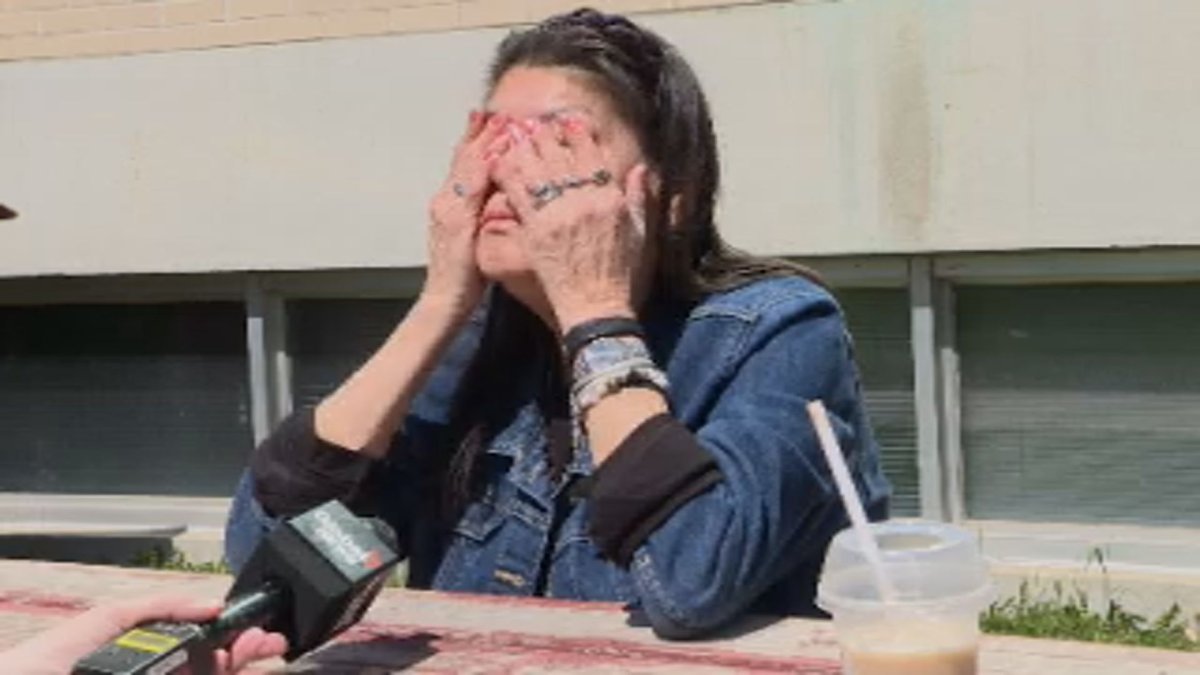On May 1, 2022, just over a year ago, rapidly rising flood waters on the Fisher River in Peguis First Nation, Man., forced 327 residents to leave their homes.

In just days, that number quickly jumped to more than 2,100 residents who were forced to leave on a moment’s notice.
Arlene Spence was one of them.
“The river ran around my place and then in the back of my place. So when the flood came, it looked like my trailer was like a big houseboat in a big lake, and that’s how my place looked,” Spence told Global News.
Spence says she and her husband initially tried to stay back to help, but were forced to leave due to safety concerns.
“We waited until the last minute and emergency services came and told us we had to leave,” Spence said.
She said they had minimal time to grab what they could and get out.
“I had like 20 minutes to half an hour. So I grabbed all my stuff. I put it on the bed, just to put it in the bags,” said Spence, who has been a resident of Peguis First Nation for most of her life.
“We had nothing, except for the stuff from our car. It was really, really hard.”
Spence, who was also evacuated during the 2011 flood in Peguis, went to Selkirk, then Gimli, and then Winnipeg, where she has been since, moving hotels seven times over the past year.
“It was really, really stressful. And I can’t imagine (what it’s like for) the families that had children, three or more,” she said.
Spence says she volunteered with the Peguis donation centre to help her fellow evacuees, as many left with very little.
“We came in here, we had rubber boots, we had big, thick ice pants on, big jackets,” Spence said. “Not thinking, ‘Oh wow, I should have packed a spring jacket or maybe some summer clothes.’ We didn’t have time.”
Spence says she just moved into a hotel room with a kitchen, which is a huge relief.
“You miss the little things that you used to take for granted, like doing your own dishes, cooking your own food…. being quiet,” she said, adding she often sits in her vehicle outside the hotel watching movies or shows on her phone, just to get some quiet.
“Most of us are on social assistance or EI and you don’t have money for gas to go riding around, or you don’t have money to go to the shows or (do things) to keep you occupied,” Spence said.
“And when you got children, it’s even harder. So I used to volunteer my time a lot wherever I could just to get out and get away.”
Spence also says she has visited Peguis a few times since leaving, and each time it gets harder to leave.
“I had a good cry when I went home. And when you go home, you don’t want to come back here. You just hate to come back here when I know my family is at home,” she said through tears.
“And my mom is there and she’s there by herself, she’s an elder, and I want to be with her so bad. I used to be with her, like I’d go see her every day. And now I worry about her so much, because she’s there by herself.
“We used to just go say hi, she if she’s OK, and now I can’t do that. But I phone her, I phone her every day. But I really wish I could go home.
“I cry and I pray, I pray that we can all go home, soon.”
Alana Sutherland is also a Peguis evacuee. In the past year, she’s moved hotels more times than there are months in a calendar year.
“(I) never thought it was going to be a whole year and (I’d) still be in Winnipeg,” Sutherland told Global News.
“We’ve switched (hotels) close to 15 times probably, all in Winnipeg, just to be close to my kids and my grandkids.”
Sutherland has been working with the evacuee support team in Winnipeg. She says she’s grateful for the distraction.
“If it wasn’t for this job… I get the chance to leave the hotel, but there are some people who are stuck in these hotels with seven kids, four kids and that’s a lot of them,” Sutherland said.
“So I can’t complain that much because at least I get a break for work, coming to work. And then there are people who just wait in hotel rooms where kids can’t play around or they have to keep extra quiet (because) of other guests, which we all understand that.”
At the peak of the 2022 flood, more than 2,100 Peguis residents had to leave. One year later, 610 residents are still unable to return home, as their homes are filled with mould and have structural issues due to the flooding.
About 324 residents are still living out of hotels, according to Cheryl Bear, the needs supervisor for the Peguis First Nation evacuee support team. Other evacuees have been moved into rental accommodations as more suitable, long-term housing.
Bear says the time spent away from home has been extremely hard on the community, especially for those living in hotels.
“Being in those hotels for a year has caused a lot of different issues — mental health issues, addictions issues, family breakups, we had overdoses in the hotels due to the drug addictions, families can’t cook for themselves,” Bear told Global News.
“Education is a big thing for our students. All those kids in those hotels couldn’t get into education, couldn’t get into schools in Winnipeg because (they) have to have an address in Winnipeg to be able to go to a school. A hotel is not an address. So our kids have been out of school for a whole year.”
Bear says learning packages for the students don’t go far enough.
“It’s a lot of young kids, a lot of young families. It’s hard to do anything in a hotel, never mind schoolwork.”
In an emailed statement to Global News, a spokesperson for the federal government said Indigenous Services Canada (ISC) continues to work with Peguis First Nation, the Canadian Red Cross and the provincial government to support evacuees.
The spokesperson also said ISC has received 210 independent damage assessments from the 2022 flooding. Of those, 85 units will be replaced and another 125 will be renovated or rehabilitated.
The statement also said ISC provided $18 million to Peguis First Nation for flood response and recovery between May 2022 and March 2023, and an additional $2.5 million was provided to support 2023 flood prevention efforts, including clearing and repairing culverts and cleared ditches and channels.
Bear says she hopes the Peguis residents at home and all Manitobans keep the evacuees in their minds.
“Make sure you keep our evacuees in your mind, in your thoughts, in your prayers,” Bear said. “Because we are going through a lot in the city, we’re making best with what we have, but just to remember that we still have evacuees out and to remember them in your prayers. Miigwech.”





Comments